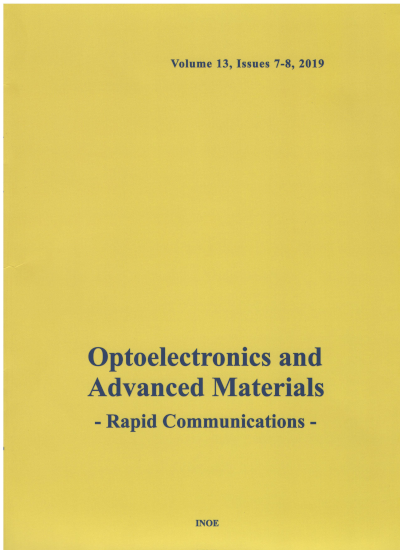Abstract
Ionomeric cements are usually made from vitreous powders of CaO-CaF2-Al2O3-SiO2 composition and aqueous solutions of
polyacrylic acids (PAA). Their main advantage consist in the quick working, without cracking or major thermal increases, as
well as their high mechanical strength. The chosen vitreous materials are fluoro-alumino-silicatic, from quaternary system
CaO-Al2O3-SiO2-F, with some amounts of soda oxides. For the projection of annealing programs are plotted the thermal
expansion curves, with the Linseis, L 75 type, dilatometer and are calculated the characteristic temperatures. The thermal
expansion coefficients, on 20-320 o
C temperature domain, are determined, and measured the density of the samples, by
hydrostatic method. The bio-compatibility of the samples is evaluated with the aid of micrographic analyze, made in phase
contrast, of the culture osteoblastes in the presence of samples. It is calculated the viability of the human embrionary
osteoblastes in the presence of powdered samples.
Keywords
Ionomeric cements, Fluoro-alumino-silicatic glass, Thermal expansion, Bio-compatibility.
Citation
B. A. SAVA, A. DINISCHIOTU, A. CÎMPEAN, Bio compatible glass for ionomeric cements, Optoelectronics and Advanced Materials - Rapid Communications, 2, 5, May 2008, pp.258-261 (2008).
Submitted at: March 10, 2008
Accepted at: May 8, 2008
